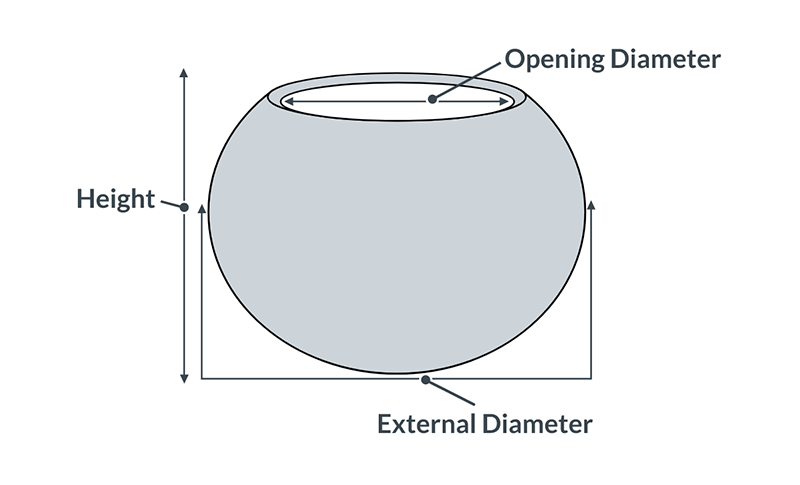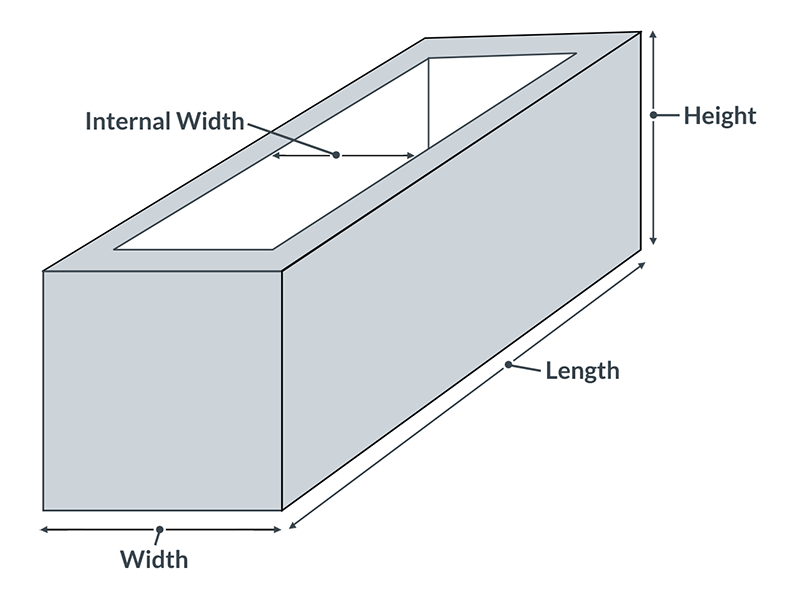
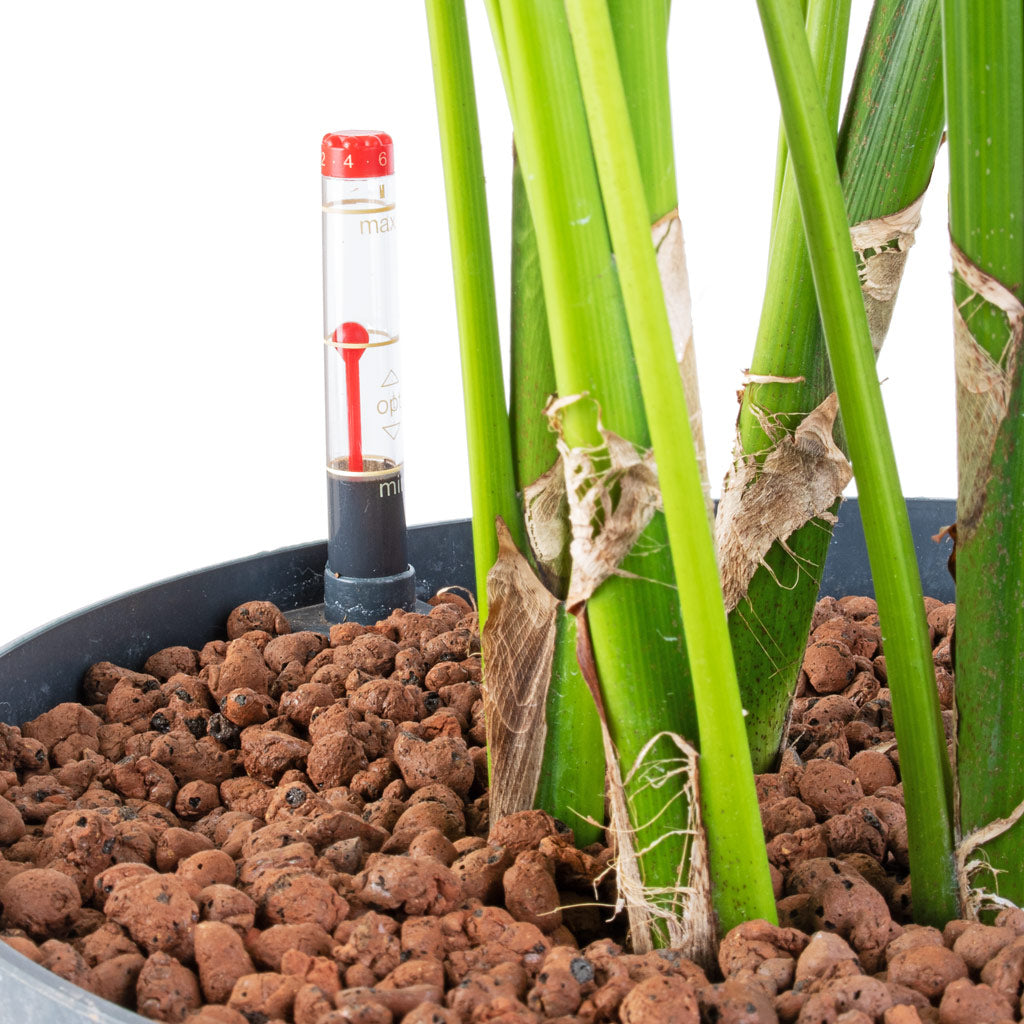
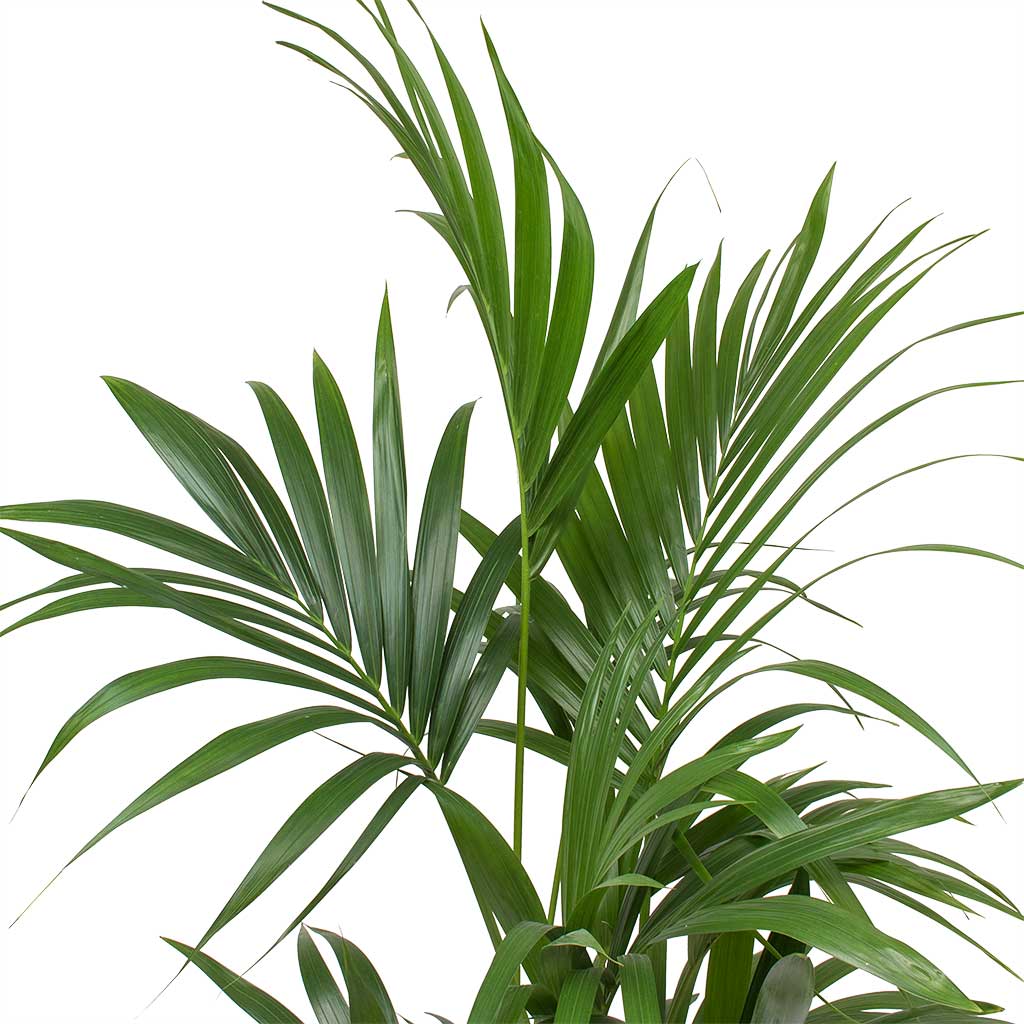
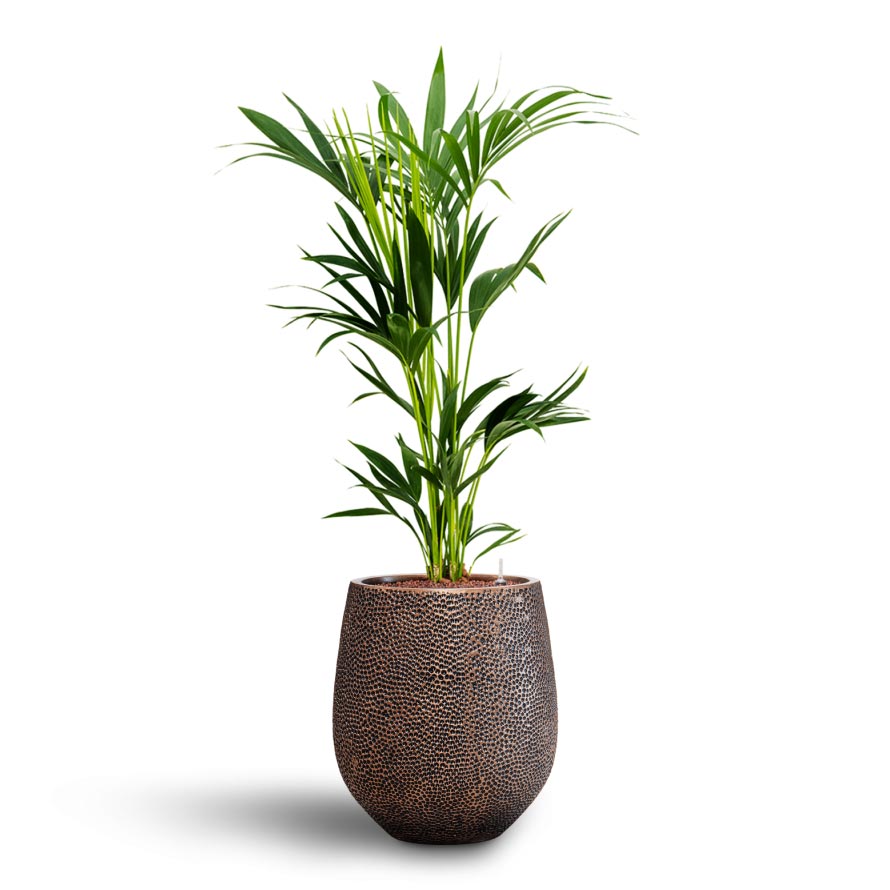

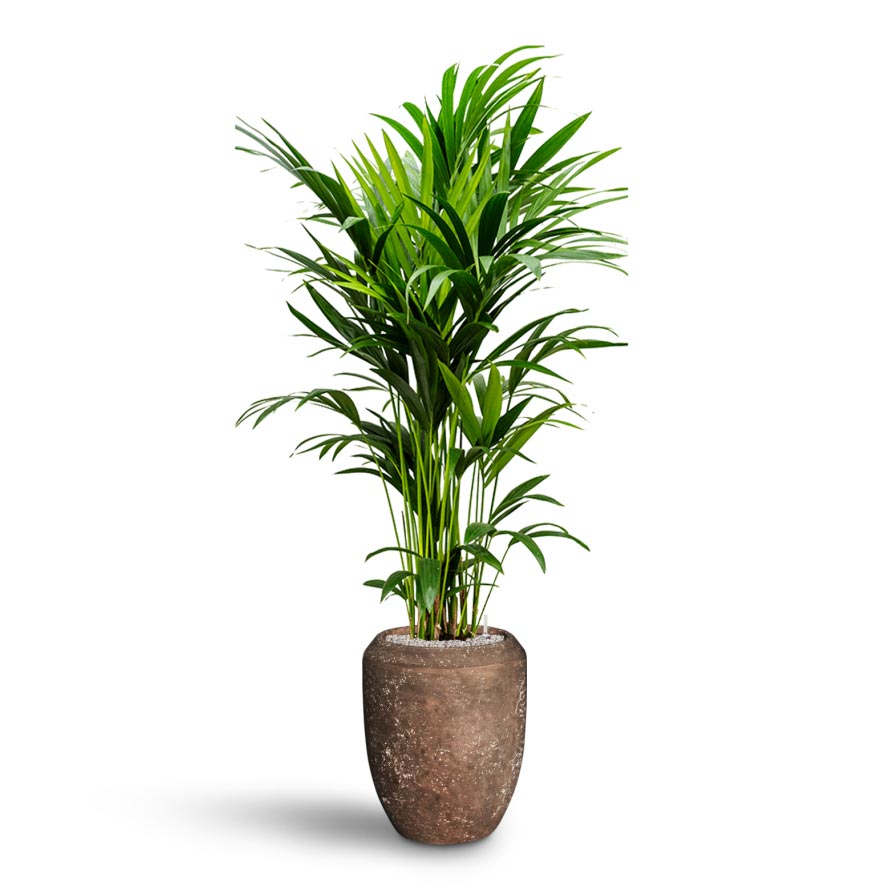
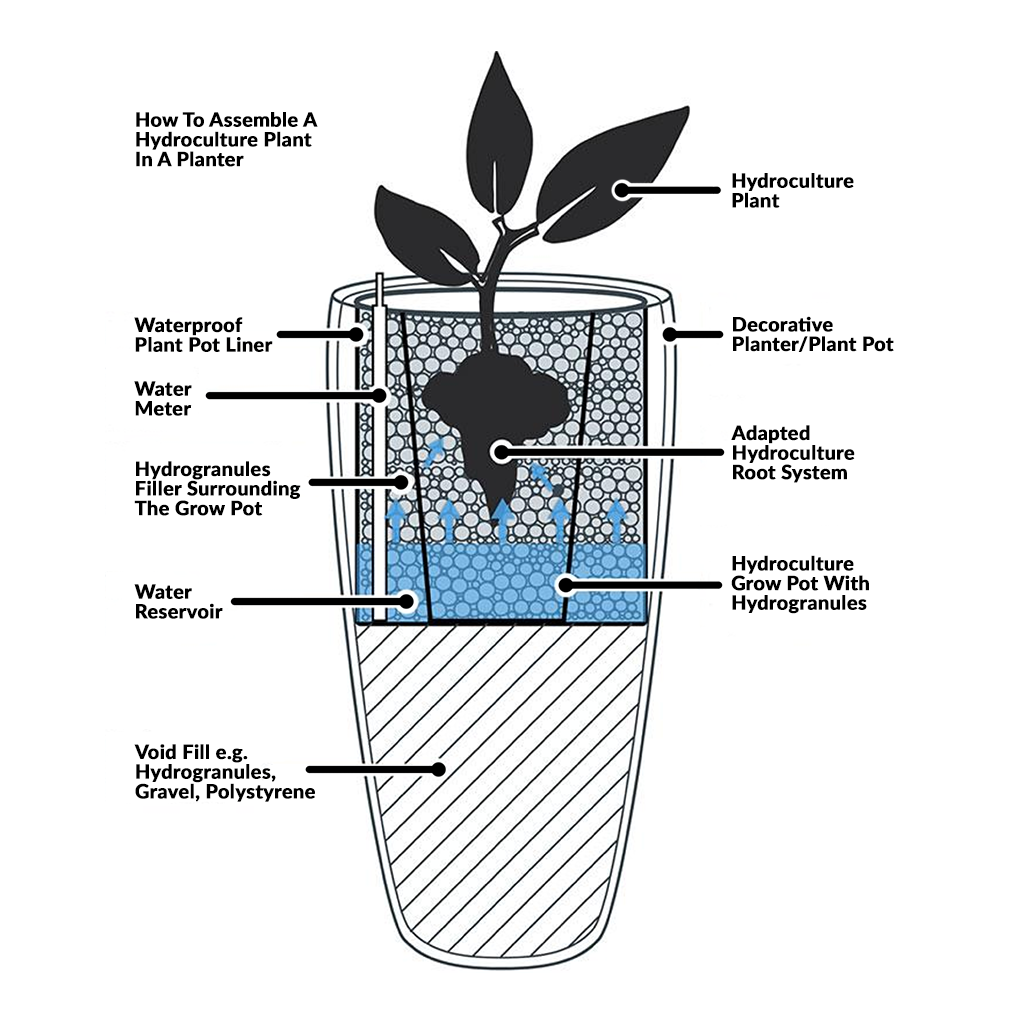

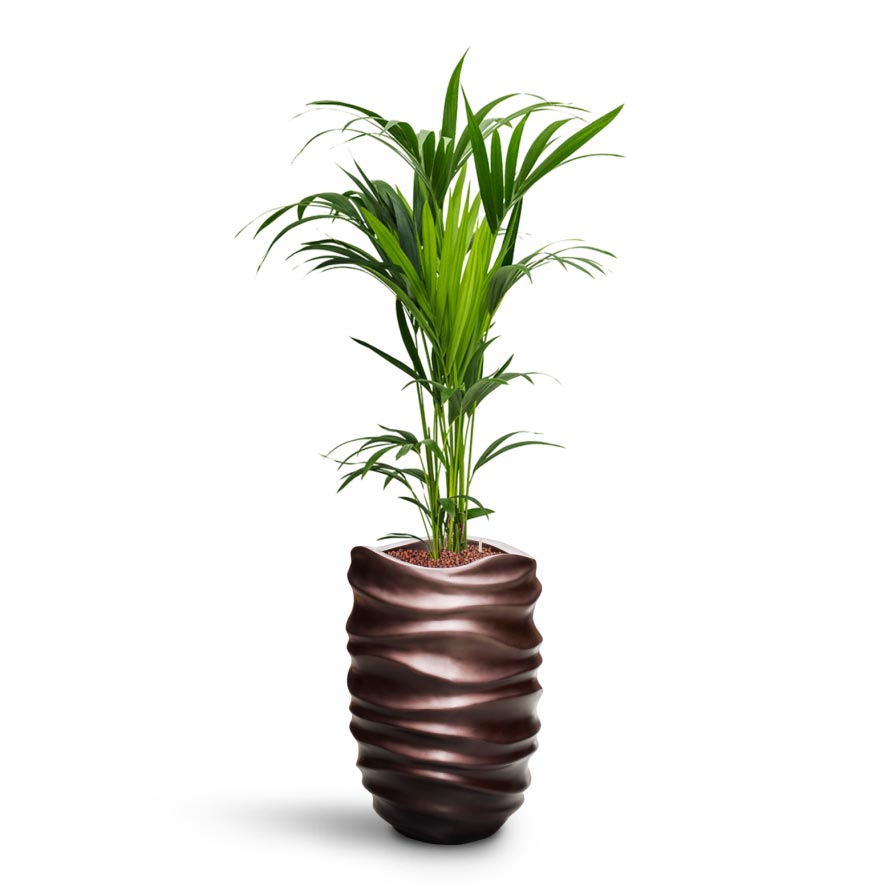
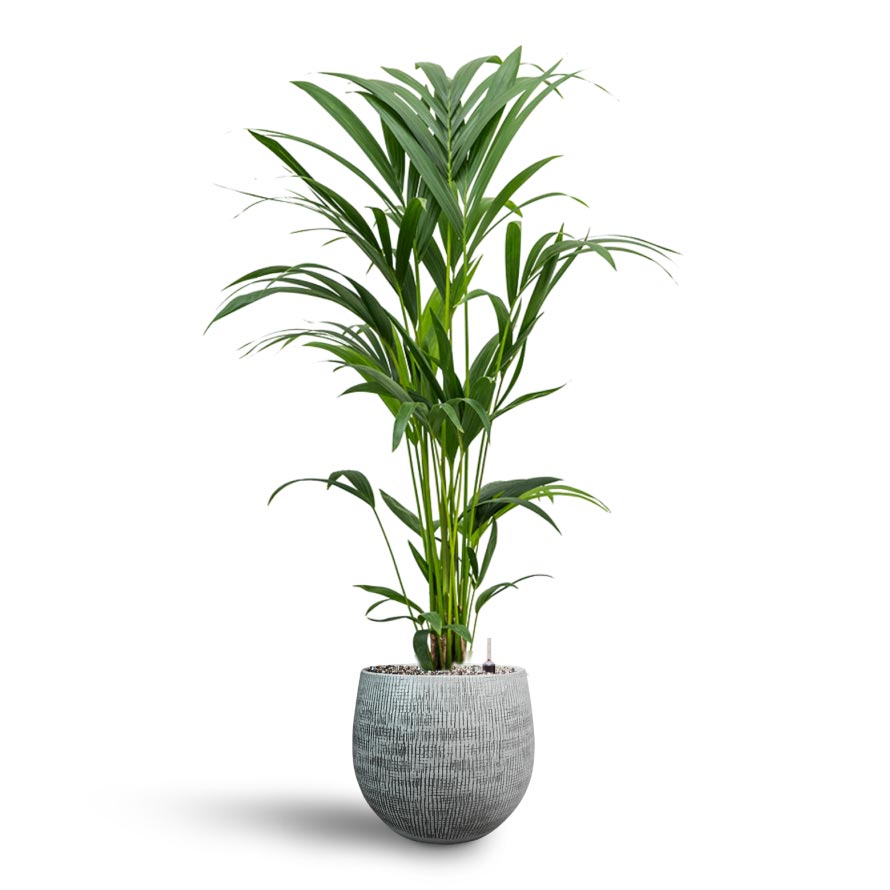
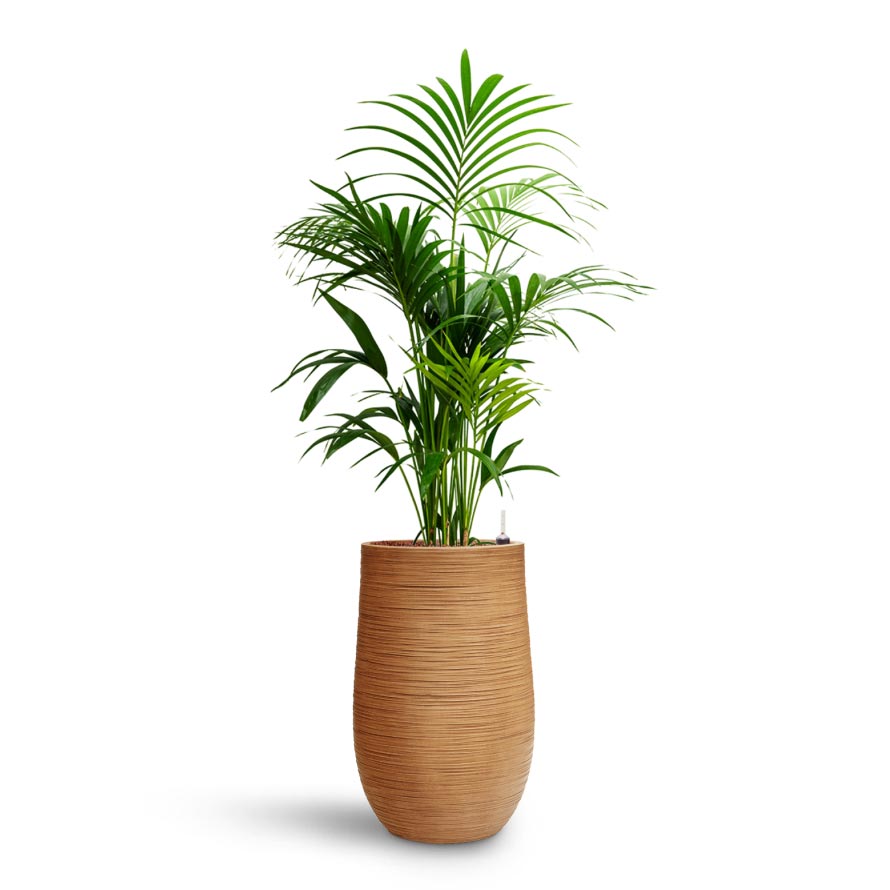


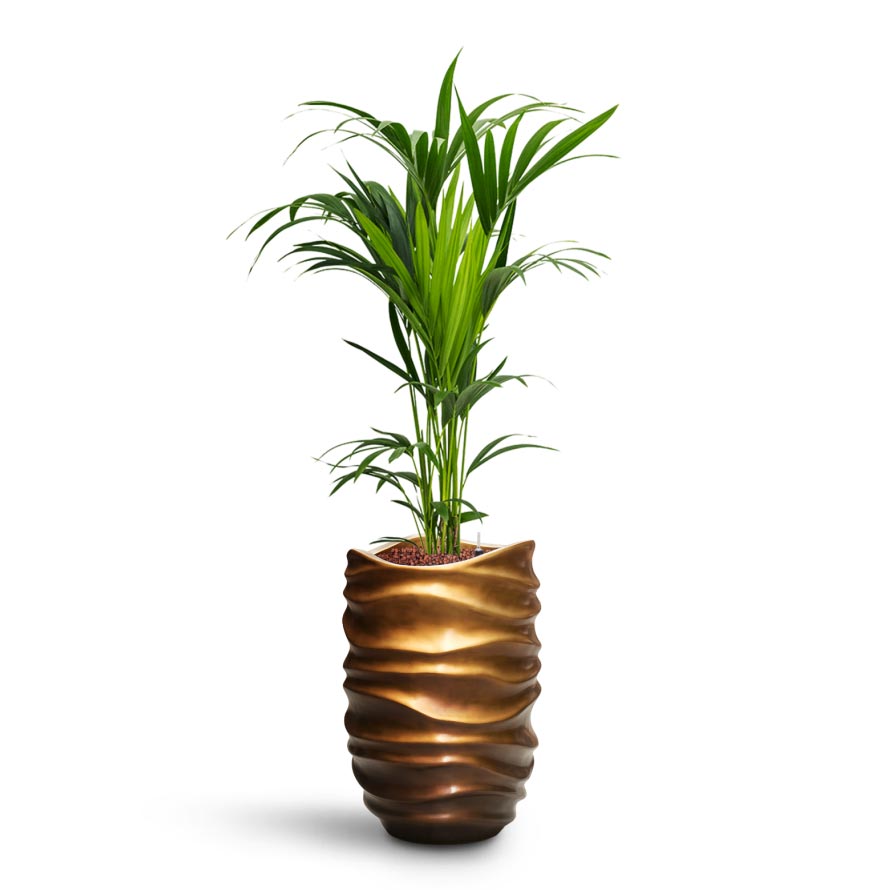

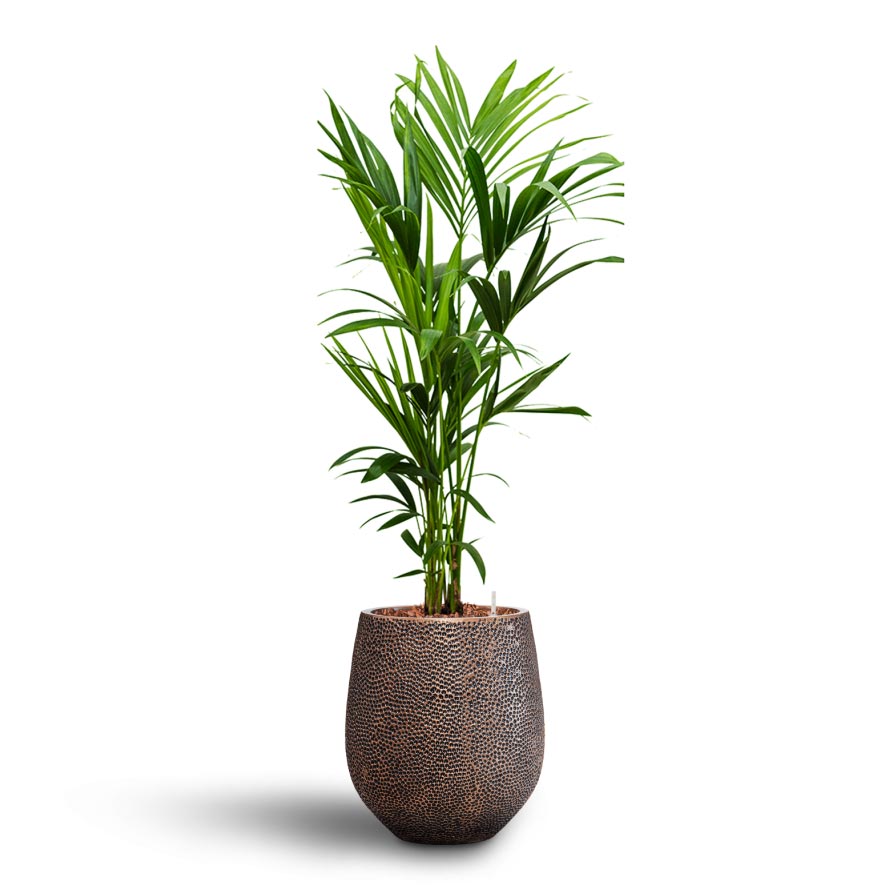
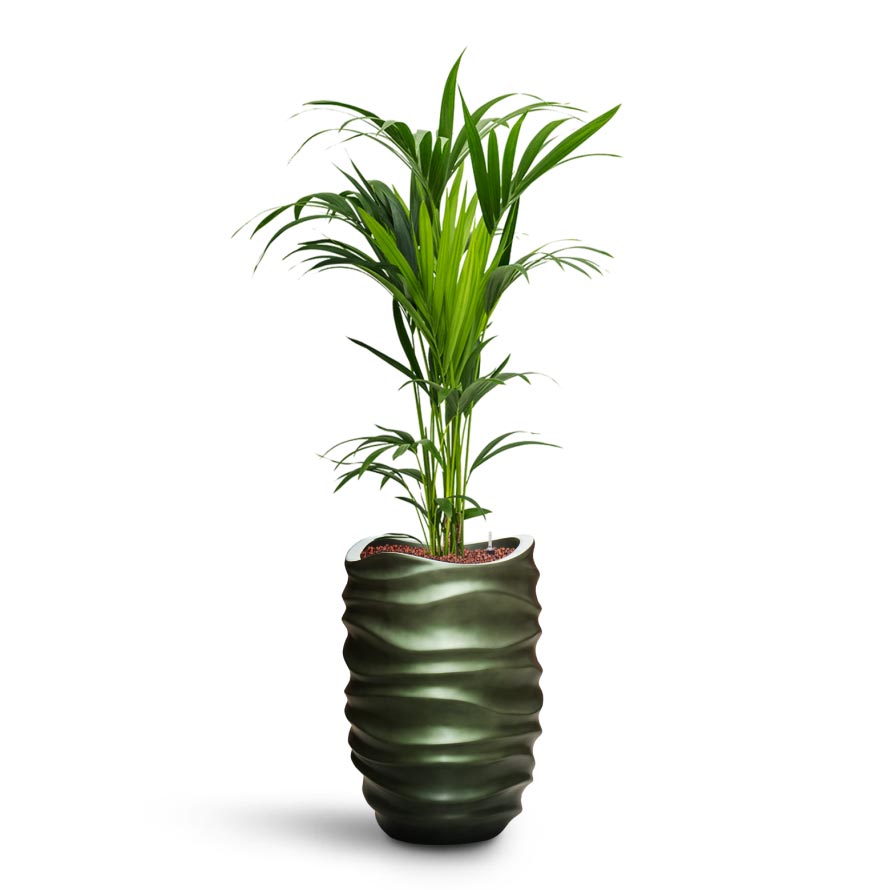
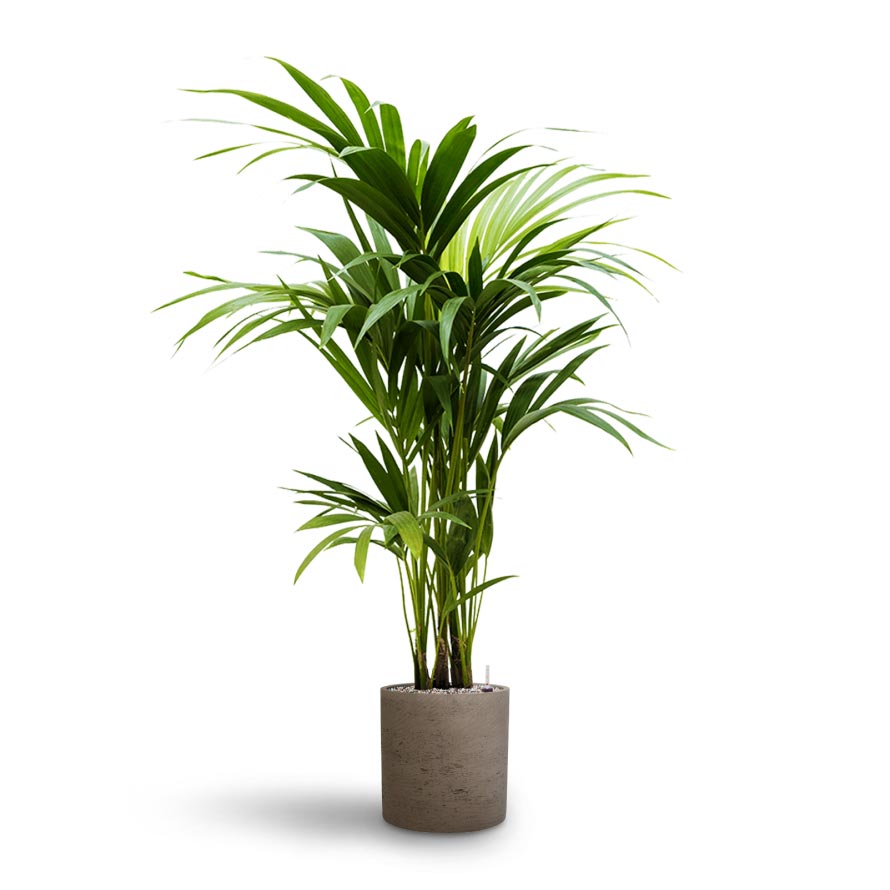
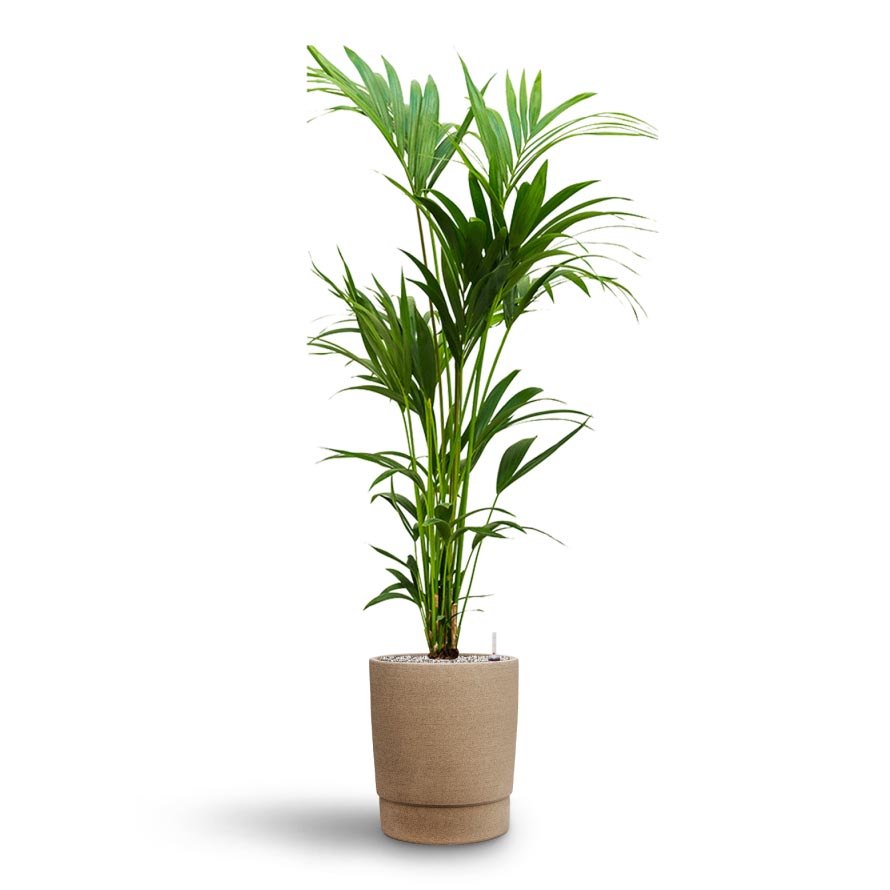

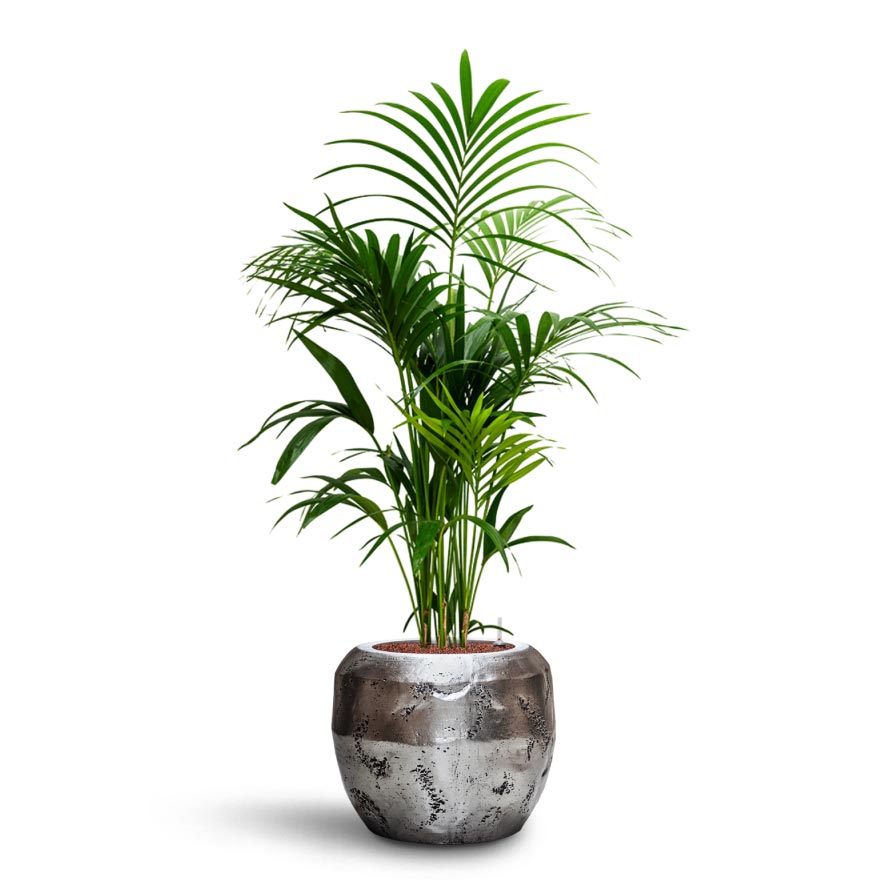
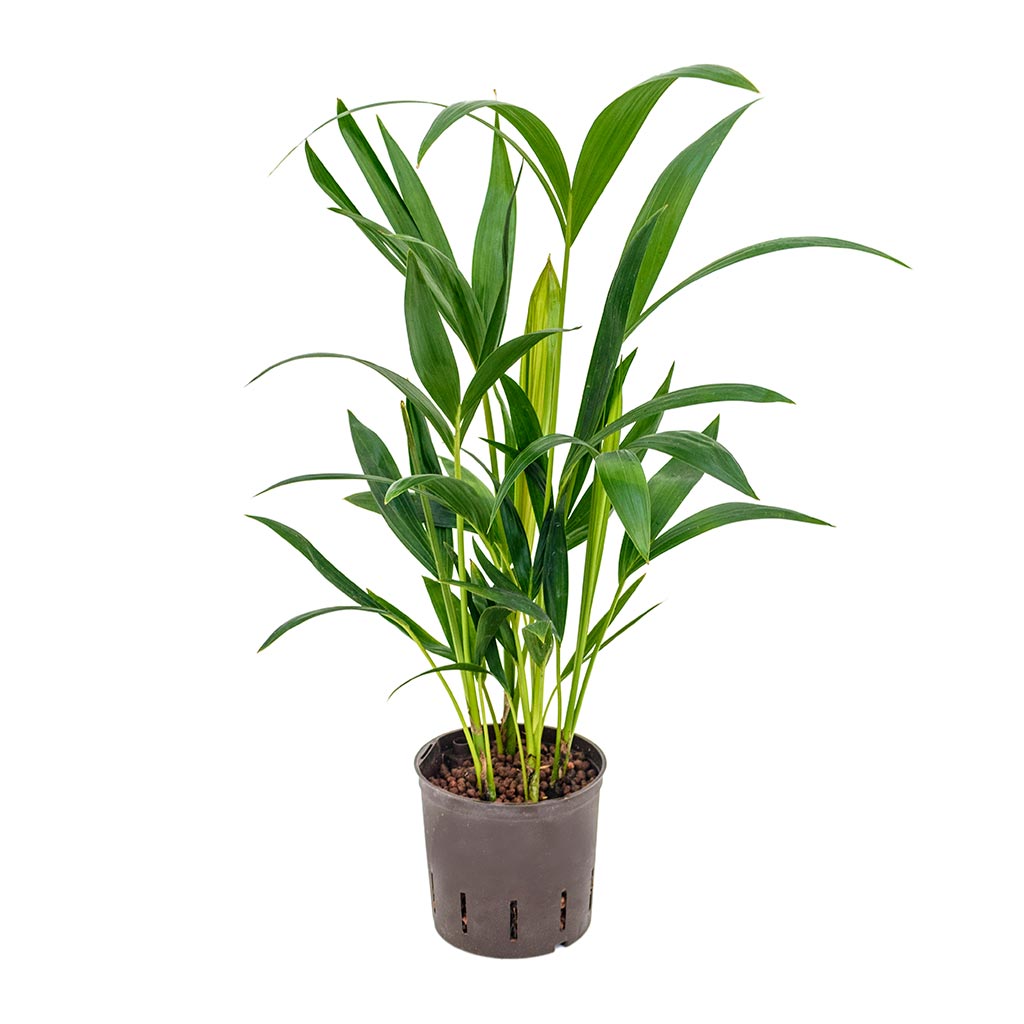
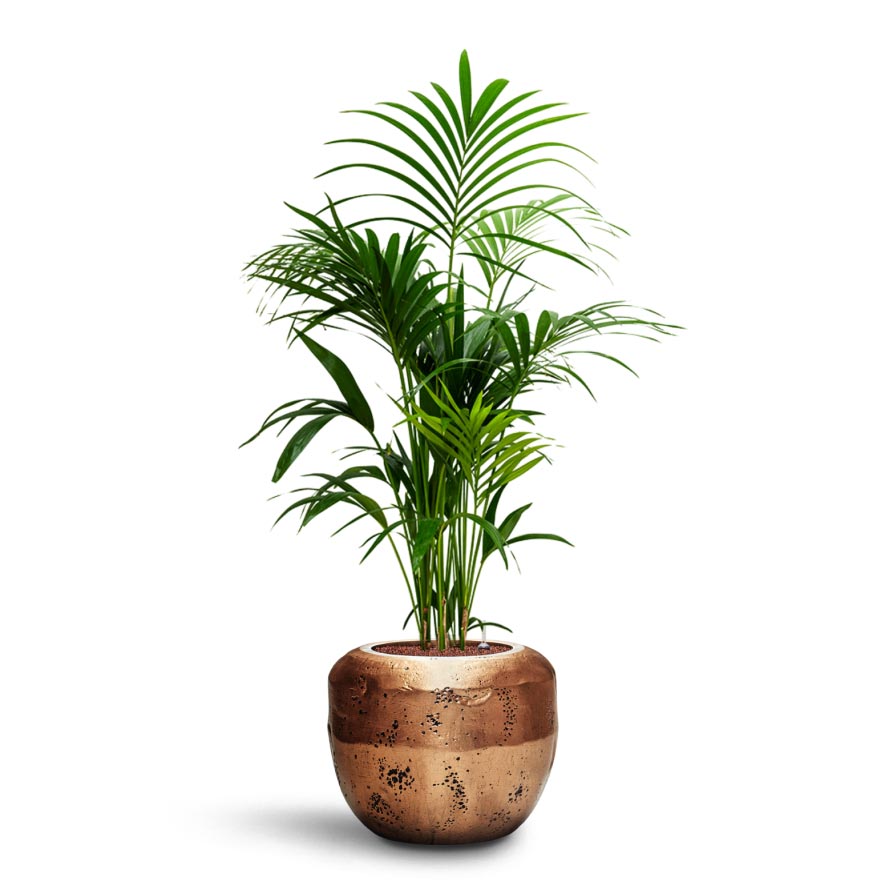

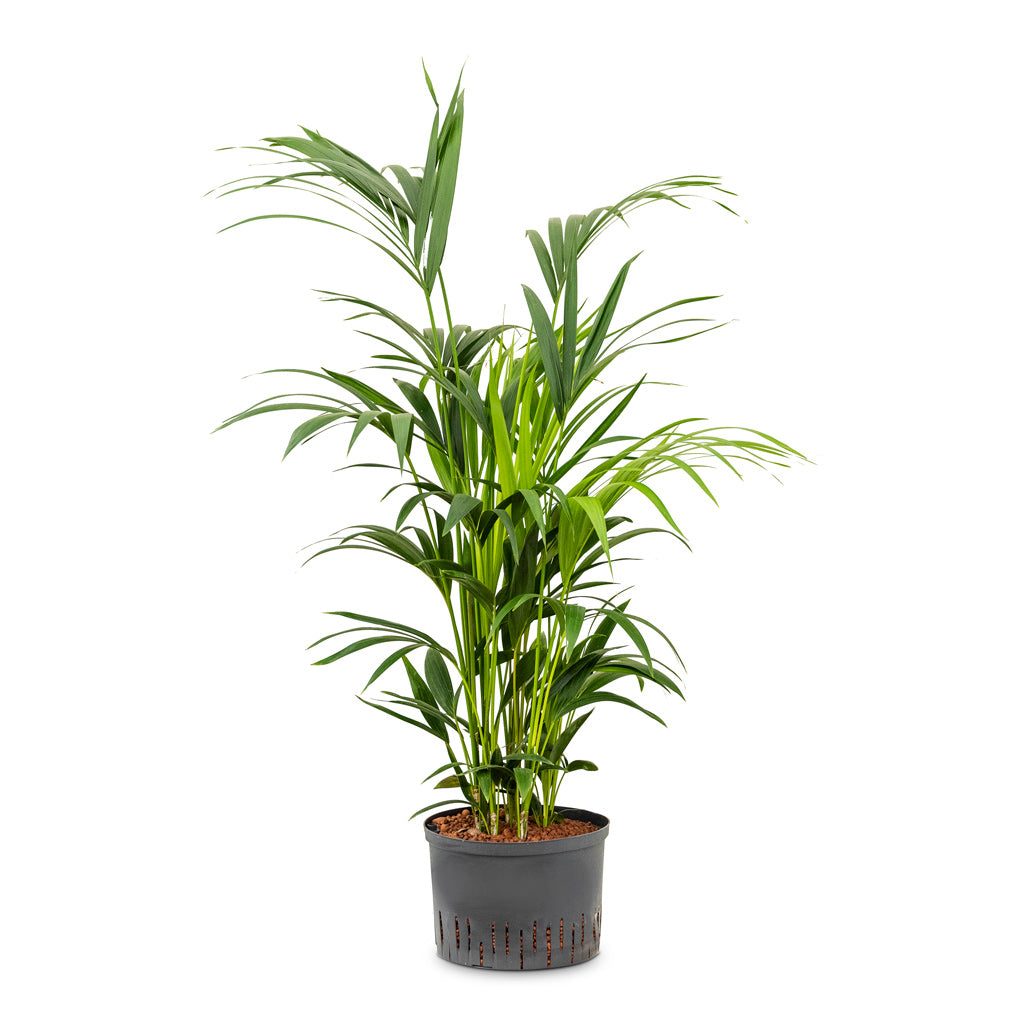
HydroCare plants are planted in hydrogranules instead of using soil.
Hydrogranules are manufactured from clay pellets that are baked at high temperatures to make them expand, a process a bit like making popcorn.
The open structure of the hydrogranules allows water and nutrients to be stored and released, creating the optimum conditions for indoor plants to thrive as well as simplifying maintenance requirements.
HydroCare plants have a lot of benefits over soil plants:
Moisture Levels: The open structure of the hydrogranules creates optimum moisture levels around the roots of the plant. Water stored in hydrogranules below the roots will be gently drawn up through capillary action for the roots to absorb. No more dried out roots or root rot.
Watering: A water meter on the side of the grow pot indicates the amount of water left in the hydrogranule reservoir below the roots. When it reaches the minimum level wait for 1-2 weeks then simply top it back up to the optimum level. The plant will pull water from the hydrogranules according to its needs so there is no risk of over or under watering and watering is less frequent.
Root Health: The open structure of our pH neutral hydrogranules allows air to circulate around the roots keeping them healthy and because they do not compact over time there is no need to top up.
HydroCare plants are adapted to these conditions and develop a smaller more fleshy root system making the plant more hardy and in a smaller grow pot meaning you have a wider choice of decorative planter styles. The requirement to repot as the plant grows is also significantly reduced.
Pest Control: Hydrogranules are an inert medium that is less susceptible to pests, fungi and bacteria which means healthier plants with less risk of disease.
When you buy a HydroCare plant, you need a few other bits and pieces to assemble the plant in your chosen planter or plant pot. Think of getting a HydroCare plant as a solution that needs to be assembled rather than just a plant.
We have a simple step by step video guide to assembling the HydroCare plant in a plant pot but essentially you need 5 things for hydro heaven:
1. The HydroCare plant in its hydroculture grow pot.
2. A water meter to slot into the side of the hydroculture grow pot.
3. A waterproof plastic liner for your decorative pot. Each HydroCare plant has an associated hydro kit that includes a waterproof liner to fit the hydroculture grow pot of the plant and a size tip to help you choose a decorative pot that will accommodate the specified waterproof pot liner for the plant.
4. Extra hydrogranules to fill around the grow pot and make a nice finish on top.
5. Hydroculture plant food, specifically formulated for use with hydrogranules.
The HydroCare version of the Kentia Palm is a perfect indoor palm. Elegant, air-purifying and resilient, it can tolerate some neglect, cooler temperatures and dry air conditions making it a low maintenance and trouble-free palm to provide lush, leafy, tropical foliage and an exotic element to any home or office interior. Howea forsteriana is also sometimes called the Sentry Palm or Thatch Palm.
HydroCare - Howea - Kentia Palm Care & Info Guide
Horty Hints
A gentle grooming! Dust (or shower) from time-to-time and remove any dead stems, cutting close to the trunk. Brown tips can be trimmed if desired, but avoid cutting into any green foliage.
Wave goodbye to the dry! To avoid tips drying out and turning brown, mist regularly or place in a high humid environment away from frequent traffic.
Too much sun isn't fun! If leaves are fading, bleaching or spotting, the palm is receiving too much direct light. Placing in an east or west-facing window will provide it with the right level of light.

Light
Prefers bright, indirect light but will tolerate shade. Direct morning or afternoon sunlight for a few hours a day should not harm an established plant, providing it is not too harsh.
Watering
Keep an eye on the water meter. Water when the meter has been on minimum for 7 to 10 days. Check out our HydroCare set up guide for more information.
Temperature
The Howea forsteriana prefers average household temperatures: between 16-24°C, but do not allow it to fall lower than 13°C. Avoid cold draughts.
Humidity
Howea forsteriana prefers increased humidity levels. Place on a shallow gravel tray filled with water and mist regularly. Ideal for bathrooms and kitchens.
Feed
Add a Hydroculture liquid feed every 2 to 3 waterings during the spring and summer months.
Height & Growth Rate
The Kentia Palm is a very slow-growing plant which typically reaches an ultimate indoor height of around 2 to 3 metres.Please note: each plant is unique so available heights are approximate and the plant you receive may vary by ±10%.

Toxicity
This palm is non-toxic and therefore safe around small children and animals.
Air Purifying
Palms clean and improve air quality by filtering toxins from the surrounding environment.

























